These 7 Tips Can Save You Money and Miles When You Prep for a Road Trip
Updated: 11/20/2023
Advertising & Editorial Disclosure
Advertising & Editorial Disclosure
All across the United States, people have been quarantining since March. They’re avoiding going shopping, gathering in large groups and leaving the house in general.
While air travel is down more than 75% from 2019, according to the TSA, people are taking road trips. Data from the Maryland Transportation Institute, as reported by CNN, shows that the week before July 4, Americans made 32.2 million trips that were more than 50 miles, which was an increase from the 31.9 million road trips made during that same period in 2019.
Since the coronavirus is still affecting large swaths of the population across the U.S., it's best to stay close to home for some. If you're suffering from cabin fever and thinking about taking a safe journey this summer via car, here are some tips on preparing your vehicle for a long road trip.
1. Get a Tune-Up
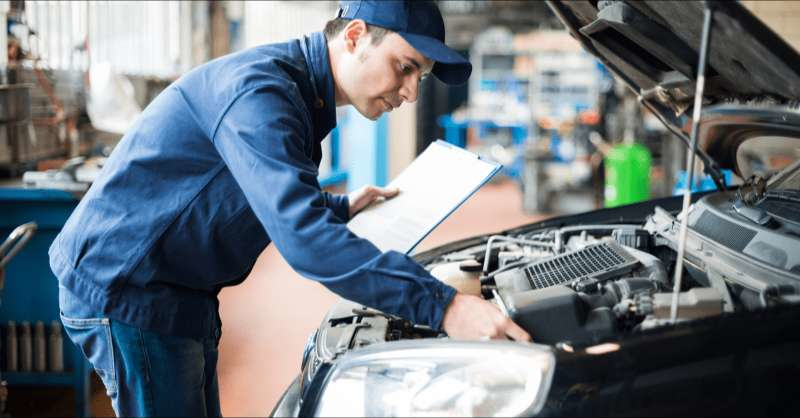
Before you set out on the open road, you need to make sure your car is in good shape. You should take it to your mechanic and ask, “Is my car too old for a road trip?” If the answer is no, then get a tune-up.
Before heading out on a long trip, it may be wise to have a mechanic do the following:
- Look at your diagnostic codes
- Check your tire tread to see if you need to replace your tires
- Ensure your tires are properly pressurized
- Fill your motor oil
- Inspect your battery
- Fill your washer fluid
If you get an oil change, many or all of these should be included in it. As an extra precaution, though, you can ask the mechanic to look at your brake pads and belts and see if anything in your engine looks off.
2. Rent a Car If Needed
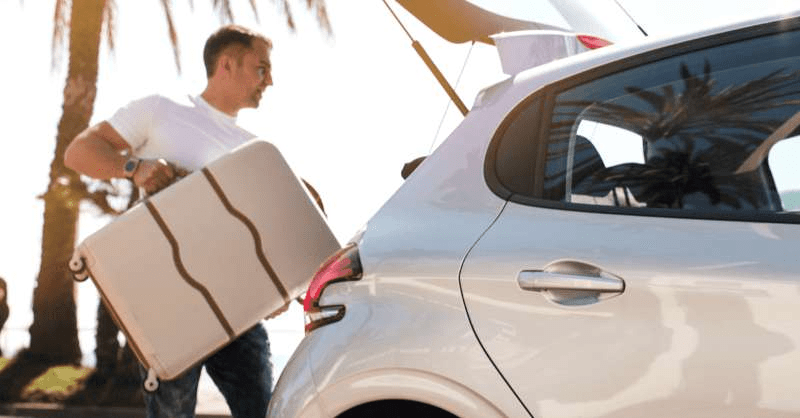
If your car is too old, or you don't have a car, you may want to consider renting a car for your road trip. The cost to rent a car for a road trip will vary depending on where you live, what kind of car you get and how long you need it.
According to Hertz, the cost to rent a car for a road trip that spans 2,000 miles and 10 days at a rental rate of $35 per day will cost $350. You'll need to add about $200 to your travel budget for gasoline (if gas is around $2.50 a gallon). Some fees come with renting a car that you should ask about to understand the rental's actual cost.
Renting may cost less than what it would cost to take your own vehicle. According to Hertz and the IRS, a 2,000-mile trip will total about $1,070 in gasoline, wear and tear and maintenance. If you lease a car, you may put more miles on it than your lease allows, which could hurt you financially in the long run if you turn in your leased car with excessive miles on it.
If you do end up renting a car, see if your car insurance will cover the rental should you get into an accident. Keep in mind that if you rent a car that is much more valuable than your own, you may want to consider purchasing car insurance from your rental company.
3. Stock Up on Supplies
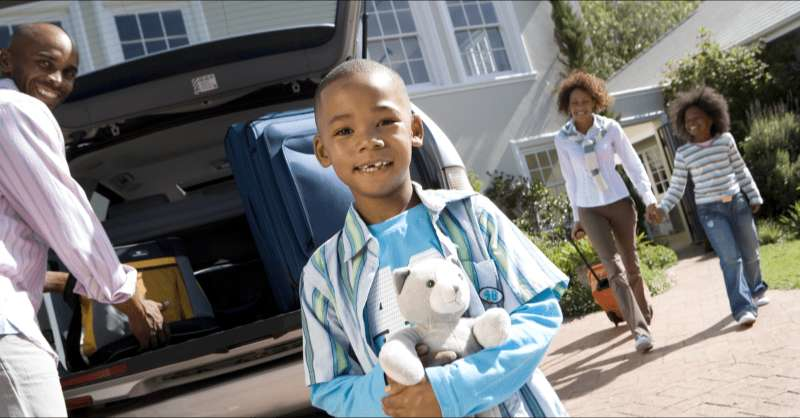
When preparing your road trip planner, make sure you include extra supplies. You’ll need things like:
- Water bottles
- A cooler
- Snacks
- Masks
- Anti-bacterial wipes
- USB chargers
- A first-aid kit
- Blankets
- Pillows
- Activities for children like games and coloring books
- DVDs for children
- Dog or cat holder, if you’re bringing pets
- Pet bowls
If everyone in the family is well slept, fed, safe and occupied during long stretches on the road, you should have a much smoother vacation.
4. Install a Cell Phone Holder, Bluetooth and Backup Camera
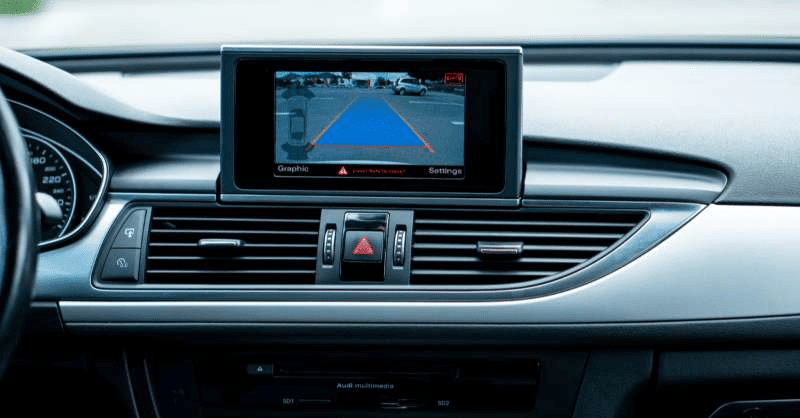
You're going to be relying on your cell phone for directions. Instead of looking down at your phone, which is dangerous distracted driving, install a holder in your car to clearly see those directions if you don't have navigation capabilities built into your vehicle.
Another thing to do to prepare your car for a long road trip is to install Bluetooth in your car if you don't have it already. You can easily play your favorite podcasts and talk on the phone while hearing it through your speakers. You may also want to invest in a backup camera, which will make parking that much easier. You can find a backup camera on Amazon that's relatively easy to install for less than $100.
5. Get Your Car Cleaned
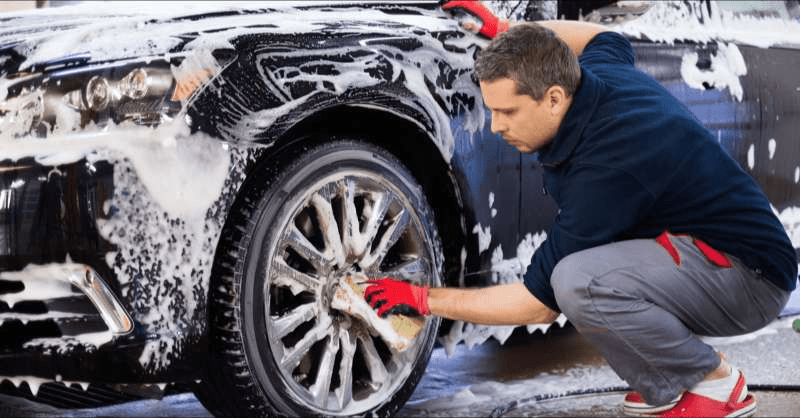
Add getting your car cleaned and detailed to your travel checklist before a road trip. It may not be at the top of your list for essential things to do before you hit the road, but starting out with a clean car, free of clutter and dust, makes for a more delightful trip. Plus, you know it will get dirty on your trip, so why not start with a freshly washed ride?
First, get rid of all the clutter in your car, including the trunk. You should get your car vacuumed, seats shampooed and exterior cleaned. You can save some money by doing it yourself or taking it to a car cleaning facility, where you'll spend a bit more but will likely come away with a much cleaner vehicle. To keep it clean during your road trip, bring a portable vacuum and a little trash can to throw things away and some plastic bins to minimize clutter.
6. Review Your Car Insurance Coverage

If you don't drive much in your everyday life, you may have minimal car insurance coverage. However, now that you're going on a road trip, you may need better coverage. You should call your car insurance provider and see if you have the right coverage if you're crossing state lines. For example, you may have the minimum limited liability coverage for your state, but it could be higher in the next state over. You may be able to extend your coverage just for your trip temporarily.
7. Get Roadside Assistance
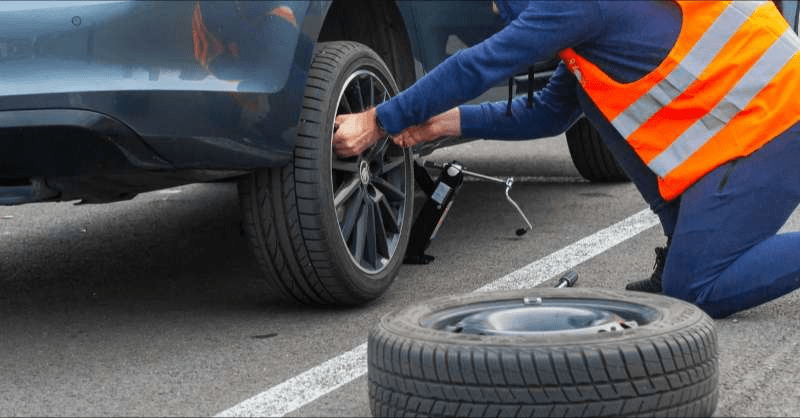
You can get roadside assistance through your auto insurance provider or a service such as AAA. If you get a flat tire in the middle of the night on an unknown road, it's not safe to get out of your car and change it. If you get a flat tire, run out of gas or have any other issue with your vehicle, you can call your roadside assistance provider, and they'll send someone to you to help you get back on the road safely. Before packing your bags, ensure your membership is up to date and your roadside assistance is active.
Getting Out Onto the Open Road
While taking a road trip is a significant endeavor, if you're itching to get out of town but don't like the idea of being on an airplane during the coronavirus pandemic, a car may be the best way to travel this summer. At least a few weeks before your adventure, get organized by doing the following:
- Start making your car checklist.
- Schedule an appointment with your mechanic.
- Check out car rental rates.
- Get all the items on your “to bring” list.
- Get your car cleaned.
- Review your insurance coverage and update if necessary.
- Make sure you’re covered with roadside assistance.
It may also be helpful to consider ways to budget for your trip before you hit the road. After all that, you'll be prepared for your exciting vacation ahead.
About the Author
Kylie Ora Lobell is a writer for MoneyGeek and an editor, marketer and publicist. She has over 10 years of experience writing in the personal finance, legal and business space for publications and brands like Legal Management Magazine, LegalZoom, Forbes, EMC, IBM, Dell, Mastercard, Visa and NCR. Her bylines include The Washington Post, The Los Angeles Times, The Jewish Journal of Los Angeles, New York Magazine and Time Out NY/LA. Her website is KylieOraLobell.com.
Sources
- CNN. “Is the summer road trip spreading the coronavirus?” Accessed July 29, 2020.
- TSA. “TSA checkpoint travel numbers for 2020 and 2019.” Accessed August 4, 2020.











